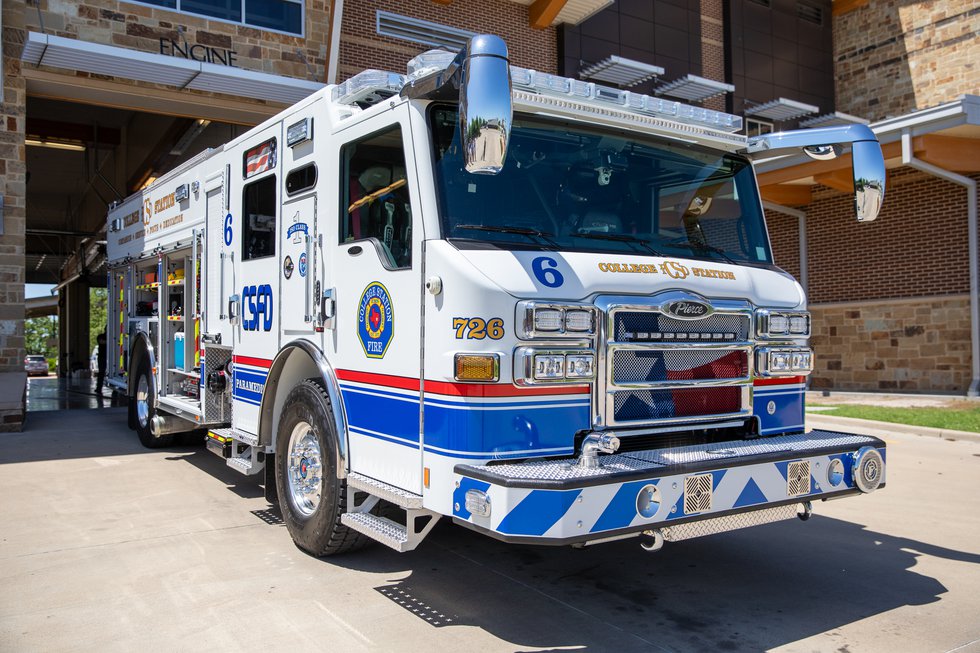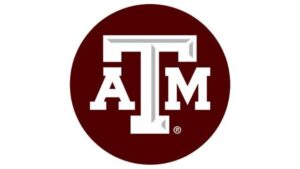College Station Fire Department
College Station Fire Department
The holiday season is a time for warmth, celebration and togetherness, but it also brings an increased risk of home fires. From festive decorations to elaborate meals, several seasonal traditions can quickly turn dangerous if not handled with care. Understanding the top fire hazards during this time can make all the difference in keeping your home safe.
To help navigate these risks, Insite spoke with College Station Fire Department (CSFD) Captain Stuart T. Marrs for information and tips on protecting your home and loved ones during the holidays.
What are the top fire hazards to be aware of during the holiday season?
“A big problem we see around the holiday season is decoration. A decoration that gives us a lot of trouble is candles. Half of home fires that start because of decorations are started because of candles. Imagine a tablescape or a mantel being decorated; there are candles and usually some greenery and other decorations. When the candles are too close to other things they can catch on fire. What we recommend is if you’re going to use real candles, only burn them when you’re present with them. You would just light the candle when you sit down [for] dinner and make sure you blow it out when you get up to clean up dinner. A really good alternative to real candles is to use battery-operated flameless candles. This way, if you forget they’re on, it’s okay. The worst that’s going to happen is you’re going to run out of batteries. They now make them with timers on them. You can set them to come on at the same time every evening and go off three hours later. Battery-operated candles are a big help when you’re trying to make your holiday decorations safer.
“Another thing to do is to always inspect the lights you will use. With the lights you string around your Christmas tree or the lights around your house, ensure there aren’t any frayed or exposed wires. Make sure that the plugs look good and are not corroded. We want to use these things year after year; we put them in storage, and they come back out, but when they’re out in the weather, the elements can [wear them out].
“Another one is your fireplace. You always want to have your decorations moved away from the fireplace if you’re going to build a fire in there, so make sure that they’re about three feet away. This includes your Christmas tree because that’s a big fire risk in a house … You may use a space heater to warm a room as the weather gets cooler; the same rule applies there. You want to keep a space heater about three feet away from anything that could combust. This could be bed linens, curtains, the Christmas tree, your recliner, whatever it is. The same rule of candles also applies to your space heaters: only use your space heater when you’re in the room. If you leave the room or leave the house, make sure you turn that space heater off. If you own an older space heater and it does not have a safety switch on the bottom, it’s time to replace that space heater. Modern space heaters have a safety switch on the bottom, so if your cat knocks it over, or a rambunctious dog or kiddo knocks over the space heater, it will automatically shut off; it won’t keep blasting hot air into the carpet or up against the curtains or wherever it gets knocked.
“Speaking of home heating, the first time your furnace kicks on in the fall, you might have a burnt dust smell. We recommend calling your favorite local HVAC technician and having them come out and perform a service inspection and a cleaning on your unit. We get a lot of calls in the fall about the burnt dust smell. People think there’s something wrong with their furnace when they first turn it on, but this is usually just the dust from the last few months burning off their furnace.
“Also, if you have a live Christmas tree, water it daily to keep it fresh so it doesn’t dry out. Dried-out Christmas trees are a big fire risk. They can create a lot of fire very quickly. Keep that Christmas tree watered, and then at the end of the season, get that fire risk out of your house.”
What are some safety tips for the holiday season?
“Thanksgiving is all about cooking the big meal and smaller meals during the whole weekend when the family is over, so kitchen safety is a big thing. This includes staying in the kitchen while cooking and paying attention to what’s on the stovetop, what’s in the oven and what’s being prepared. You should make the kitchen an off-limits zone for children and pets running through. Even things as simple as having visitors come over and throw their things or purses down on the floor [can be a hazard] if someone trips over it. There are simple things like that. The biggest one is to watch what you’re cooking, especially stovetop things. Oftentimes, on Thanksgiving, all burners are going. You may have all four or all six burners going with something cooking, something in the microwave and two things in the oven. When a lot is going on, it’s easy to lose track, get distracted and let something get too hot. Just be present, mindful and make the kitchen kind of an off-limit zone for people who are not actively involved in the cooking.”
What is the safest way to fry a turkey?
“The best way to fry a turkey is to use an oil-less fryer. This is a cleaner method and it tastes just as good, in my opinion. These are much more safe than submerging that turkey in actual cooking oil, and it’s a little less expensive because you don’t have to buy that oil. It’s a great turkey every time. You need to make a plan to just be there with it, be around it and keep an eye on it because things can still go wrong. But it’s pretty fast and delicious.”
What would you recommend for a grease fire?
“If a fire does happen, having a fire extinguisher nearby when you’re cooking is great, whether you’re doing outdoor cooking on a grill or an oil-less fryer or you’re just in your normal kitchen. There are other things to try before you get those fire extinguishers out. One really easy thing to do if you have an oven fire is to turn the oven off and leave the door closed. f you have a stovetop fire, put the lid on the pot. Fire extinguishers make a lot of mess and ruin everything in the kitchen. Just putting that lid on and turning the burner off is the best first step that you can do.
“Never put any food on fire in the sink and run water on it. This is because fire and grease and water do not mix. The big mistake a lot of people make if they have a kitchen fire is they try to pick up the pan and move it, and they’ll either pull it out of the oven, which exposes the fire to more oxygen, or they’ll try to carry it outside which leads to them sloshing oil, which may result in burns to their hands. You’ll drop it once you slosh that onto your hands and arms.”
In the event of an emergency, what steps should families take to ensure they are prepared and can respond quickly and effectively?
“They should have a fire extinguisher in the home. I always tell people to make sure it’s somewhere it won’t get hidden or lost. Often, you’ll see people have a fire extinguisher in their home, but it’s under their sink. When it’s not ever used, it gets pushed back to the back behind the sponges, Fabuloso, Comet and everything else that you put under your sink, making it difficult to grab. Mine sits out on the countertop. [The fire extinguisher] is just a feature of the kitchen because I’m going to need to grab it quickly. If the toaster oven or fried chicken flares up, I don’t want to dig for it underneath the sink. Have an in-home fire extinguisher before you have holiday guests come over. Check your smoke alarms and smoke detectors to ensure they’re also working. Put fresh batteries in [the smoke detectors] if they’re battery-powered. That’s just a very important general safety tip for all times of the year.”
Do fire extinguishers expire?
“Yes, if they get old, they might lose pressure. Although they put something in there to ensure the powder doesn’t cake up after so many years, it’s not likely to work as well.”
Are there any misconceptions about fire safety during the holiday season?
“Yeah. A big one is that people don’t think it can happen to them, so they don’t take some simple steps to be prepared.”
Are there any important safe holiday practices that can often get ignored?
“New Year’s is a popular time for people to buy fireworks and pop them at their homes. When fireworks are not supervised by an adult and done in a safe area, that can be a problem. The biggest problem we see with those is actually burns, and a lot of children get burns from sparklers. Some of the bigger fireworks, [most] everyone understands that, ‘Hey, this is a big one. It’s gonna make a big boom. We’re gonna send an adult up there to light it, so we all should stand back.’ The first thing you do with a sparkler is light it and hand it to a little kid. If they throw it down and then somebody else comes along and steps on it, you may get a foot or a finger burn, causing a lot of problems. If you’re going to do fireworks for New Year’s Eve, ensure it’s supervised by an adult. There are a lot of alternatives to fireworks — you can use glow sticks, poppers, noisemakers and even bubble machines.”
To learn more about fire safety during the holiday season, visit the American Red Cross website. For information about CSFD, visit the website or email csfire@cstx.gov.


